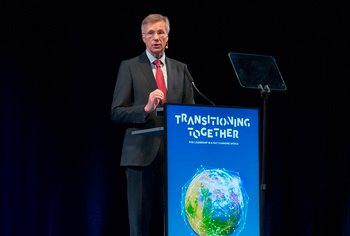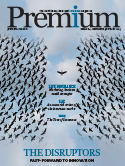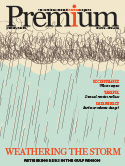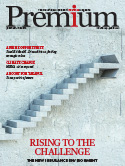FERMA Forum brings 1862 risk professionals together

Optimal risk-sharing is fundamental to a successful transition to carbon neutrality, protecting our organisations and our societies against extreme risks in the face of climate change, and in the battle against cyber-crime, said Dirk Wegener, president of the Federation of European Risk Managers.
Wegener was opening the FERMA Forum, attended by 1862 risk managers and other risk professionals from across Europe, based on the theme ‘Transitioning Together’. In his remarks, Wegener brought together three areas of concern for risk managers: the transition to carbon neutrality, systemic risks and cyber risks and how a protection gap was threatening optimal risk sharing.
For many risk managers, he said, the pandemic allowed them to demonstrate their capabilities and the value of risk management for organisations in a crisis.
They showed that enterprise risk management enabled businesses to remain resilient and in business. “In a time of such great uncertainty, it was satisfying for risk managers to put their skills to use to support their companies and their colleagues. It is not so surprising 90 percent said the pandemic had made risk management more important to their organisation.”
However, he also stated that the pandemic had been an uncomfortable time for insurance managers who had had the duty of explaining to their boards why certain risks such as non-damage business interruption were not covered.
Since then, the market has reacted by tightening wordings, for example, to specifically exclude claims resulting from infectious diseases. Overall, the hard market continues to limit risk transfer capacity and keep up prices.
He said: “We see growing concern from insurance managers about a protection gap. In the FERMA 2022 Risk Manager Survey, 41 percent of the respondents said they believe that some of their company’s activities or locations will become uninsurable in the future. This finding illustrates our concern about exposures from all risks that can be seen systemic, such natural disasters resulting from climate change.”
Wegener concluded: “Today, we are in the early stages of what may be the economic greatest transition for our societies since the industrial revolution. It requires many changes from our businesses. Yes, that is going to be demanding, but it’s also exciting, and we have a great contribution to make. Closing the protection gap is an important part of that.
“Enterprise risk management is the bedrock, the foundation of this work, and risk leadership is our compass to achieving what we want for our greener and digital planet.”





































